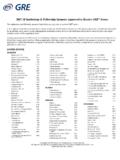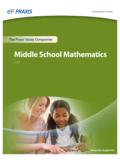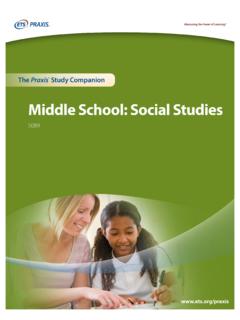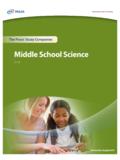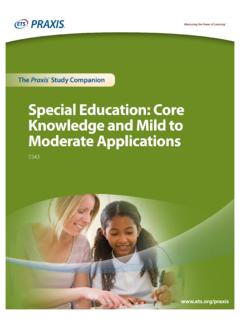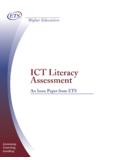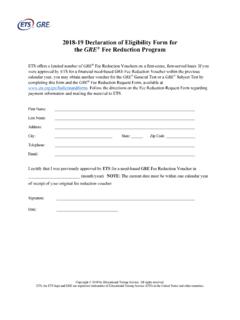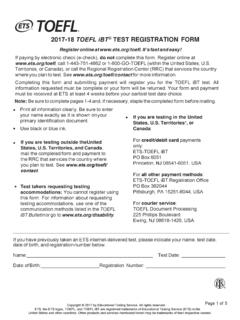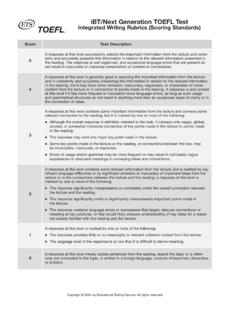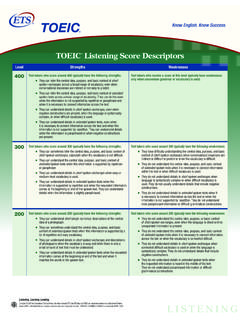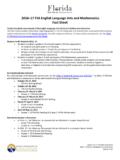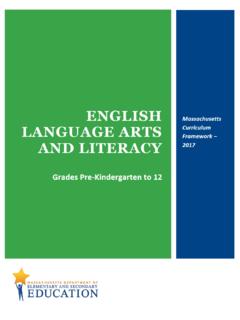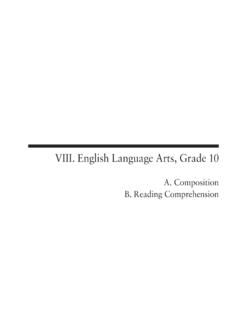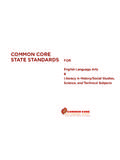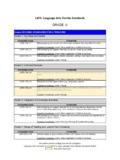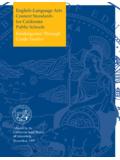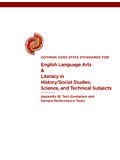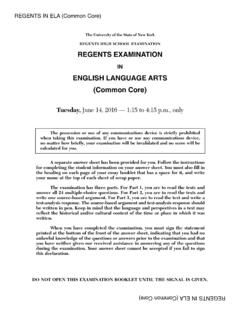Transcription of English Language Arts: Content Knowledge study companion
1 English Language arts : Content Knowledge Praxis study CompanionThe Praxis study Companion2 Welcome to the Praxis study CompanionWelcome to The Praxis study companion Prepare to Show What You KnowYou have been working to acquire the Knowledge and skills you need for your teaching career. Now you are ready to demonstrate your abilities by taking a Praxis test. Using the Praxis study companion is a smart way to prepare for the test so you can do your best on test day. This guide can help keep you on track and make the most efficient use of your study study companion contains practical information and helpful tools, including: An overview of the Praxis tests Specific information on the Praxis test you are taking A template study plan study topics Practice questions and explanations of correct answers Test-taking tips and strategies Frequently asked questions Links to more detailed informationSo where should you start?
2 Begin by reviewing this guide in its entirety and note those sections that you need to revisit. Then you can create your own personalized study plan and schedule based on your individual needs and how much time you have before test in mind that study habits are individual. There are many different ways to successfully prepare for your test. Some people study better on their own, while others prefer a group dynamic. You may have more energy early in the day, but another test taker may concentrate better in the evening. So use this guide to develop the approach that works best for teaching career begins with preparation.
3 Good luck!Know What to ExpectWhich tests should I take? Each state or agency that uses the Praxis tests sets its own requirements for which test or tests you must take for the teaching area you wish to you register for a test, confirm your state or agency s testing requirements at are the Praxis tests given?Praxis tests are given on computer. Other formats are available for test takers approved for accommodations (see page 45).The Praxis study Companion3 Welcome to the Praxis study CompanionWhat should I expect when taking the test on computer?When taking the test on computer, you can expect to be asked to provide proper identification at the test center.
4 Once admitted, you will be given the opportunity to learn how the computer interface works (how to answer questions, how to skip questions, how to go back to questions you skipped, etc.) before the testing time begins. Watch the What to Expect on Test Day video to see what the experience is and when are the Praxis tests offered?You can select the test center that is most convenient for you. The Praxis tests are administered through an international network of test centers, which includes Prometric Testing Centers, some universities, and other locations throughout the schedules may differ, so see the Praxis web site for more detailed test registration information at The Praxis study Companion4 Table of ContentsTable of ContentsThe Praxis study companion guides you through the steps to success1.
5 Learn About Your Test ..5 Learn about the specific test you will be taking2. Familiarize Yourself with Test Questions ..10 Become comfortable with the types of questions you ll find on the Praxis tests3. Practice with Sample Test Questions ..14 Answer practice questions and find explanations for correct answers4. Determine Your Strategy for Success ..26 Set clear goals and deadlines so your test preparation is focused and efficient5. Develop Your study Plan ..29 Develop a personalized study plan and schedule6. study Topics ..33 Explore in detail the Content that this test covers7. Review Smart Tips for Success.
6 43 Follow test-taking tips developed by experts8. Check on Testing Accommodations ..45 See if you qualify for accommodations to take the Praxis test9. Do Your Best on Test Day ..46 Get ready for test day so you will be calm and confident10. Understand Your Scores ..48 Understand how tests are scored and how to interpret your test scoresAppendix: Other Questions You May Have ..50 The Praxis study Companion5 Step 1: Learn About Your Test1. Learn About Your TestLearn about the specific test you will be takingEnglish Language arts : Content Knowledge (5038)Test at a GlanceTest NameEnglish Language arts : Content KnowledgeTest Code5038 Time2 hours and 30 minutesNumber of Questions130 selected-response questionsFormatThe test includes single-selection, selected-response questions with four answer choices.
7 It also includes some of the following question types: multiple-selection selected-response , order/match, audio stimulus, table/grid, select in passage, and video stimulusTest DeliveryComputer deliveredContent CategoriesApproximate Number of QuestionsApproximate Percentage of TestI. Reading4938%II. Language Use and Vocabulary3325%III. Writing, Speaking, and Listening4837%IIIIIIA bout This TestThe English Language arts : Content Knowledge test measures whether prospective secondary school English Language arts teachers have the standards-relevant Knowledge , skills, and abilities believed necessary for competent professional practice.
8 Aligned with the Common Core State Standards (CCSS) for English Language arts , the test measures examinees skills and Knowledge of concepts relevant to three categories: reading, including the study of literature ( , stories, drama, and poetry) and informational texts ( , literary nonfiction, such as essays, biographies, and speeches); use of the English Language , including conventions of standard English and vocabulary development; and writing, speaking, and listening. The 130 selected-response questions will address all of these test may contain some questions that will not count toward your Praxis study Companion6 Step 1: Learn About Your TestTest SpecificationsTest specifications describe the Knowledge and skills measured by the test.
9 study topics to help you prepare to answer test questions can be found on page ReadingA. Literature1. Knows major works and authors of United States, British, World (including non-Western), and Young Adult literaturea. identify the authors and titles of major works of fiction, poetry, drama, and literary nonfiction2. Knows the historical, cultural, and literary contexts of major works and authors of United States, British, and World literaturea. identify the historical or literary context of major works of fiction, poetry, drama, and literary nonfiction3. Understands the defining characteristics of primary literary genresa.
10 Identify typical characteristics of a genreb. apply correct terminology for a genre ( , stanza versus paragraph)4. Knows the defining characteristics of major forms within each primary literary genre ( , poetry: ballad, haiku)a. identify characteristics of major forms within each genre through distinctions in structure and Content ( , sonnets versus ballads, satire versus realism)5. Understands how textual evidence supports interpretations of a literary texta. comprehend the literal and figurative meanings of a textb. draw inferences from a textc. determine the textual evidence that supports an analysis of a literary text6.
